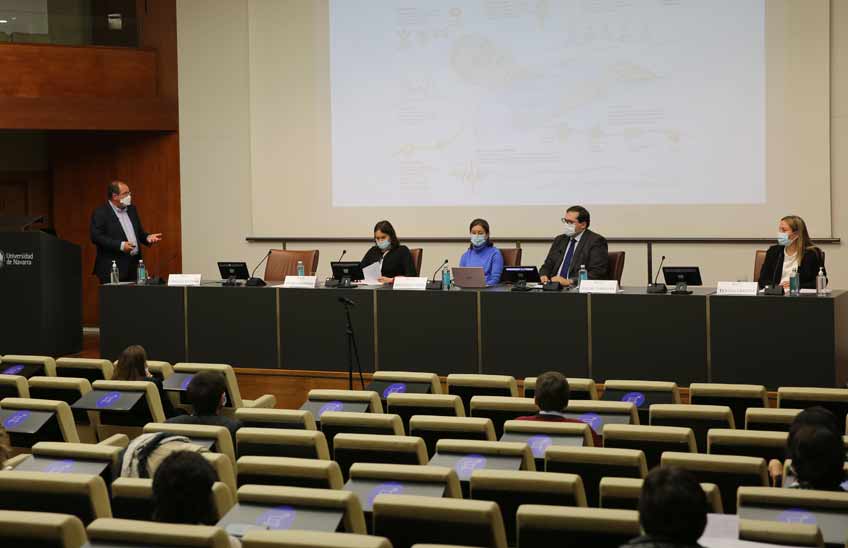"The euthanasia one is not a discussion Closed "
Experts in Medicine, Law, Ethics and Communication address the importance of dignity, care and autonomy following the recent passage of the Euthanasia Act

23 | 04 | 2021
"Let us seek a society that protects the weak and relieves the sick," said Dr. Carlos Centeno, director of the Palliative Care Service of the University of Navarra. Clínica Universidad de Navarra at the roundtable "About Euthanasia", organized by the high school Core Curriculum of the University of Navarra. In the session, experts in Medicine, Law, Ethics and Communication addressed the importance of recovering the genuine sense of dignity, care and autonomy after the recent approval of the Euthanasia Law.
Dr. Centeno explained some advances in medicine that combat the fear of dying in pain. "Death should come gently, peacefully, without violence; relieved of the suffering of illness and the pain of separation from those you love," said Centeno, director of the group of research Atlantes of the Institute for Culture and Society (ICS). A reality that, according to Centeno, "is possible today" with advances in medicine. "With good medicine it is possible to die in peace and without suffering. Euthanasia means dying with suffering; it is the opposite of natural death, it is dying with violence. That is why medicine and euthanasia do not meet. That is why there cannot be agreement", he affirmed.
Ethics professor José María Torralba stressed that "euthanasia is not a discussion already Closed after the approval of the law". "Those of us who think that it contradicts the common good have the duty to continue explaining it to society, as any citizen does when faced with a law that he or she considers unjust. That is the proper thing to do in a healthy democratic society," he added. Specifically, it seems serious to him that, from now on, "all sick or highly dependent persons will be forced to ask themselves whether they should request euthanasia", a situation that "will leave the weakest in status unprotected, despite the guarantees that the law intends to offer".
He also explained that the original meaning of human dignity is being changed. "With this law, the person is left alone in the face of his or her decision and the certainty that society will give him or her all the necessary support, for as long as it is needed, is diluted," he said. "In caring for another person, our humanity shines in a special way. Let us be a society proud of caring for its elderly, sick and dependent people, where no one thinks that they are superfluous or a burden," he concluded.
For her part, Professor Teresa Sábada, an expert in Communication, highlighted the need to create new images and contextual frameworks that serve to recover the meaning of concepts in the face of the current "conceptual confusion" that has arisen in the euthanasia story. "We must help clarity in the discussion in two directions: the meaning of the reality that we understand by euthanasia and in the introduction of nuances." In addition, he highlighted some frameworks of current public opinion that favor the defense of life, such as social equality, the recovery of the sense of the natural or the value of accompanying COVID patients that has been extolled in the pandemic, among others.
From a legal perspective, the new law, according to Pilar Zambrano, professor of Philosophy del Derecho, presents a reality that is "irreconcilable with other rights", since by decriminalizing euthanasia other rights have been called into question, such as "the right to life, privacy or autonomy, which allows one to dispose of one's own life with or without the help of third parties". In addition, Zambrano warned of the affectation of the right to equality, since "we cannot allow euthanasia as discrimination".
